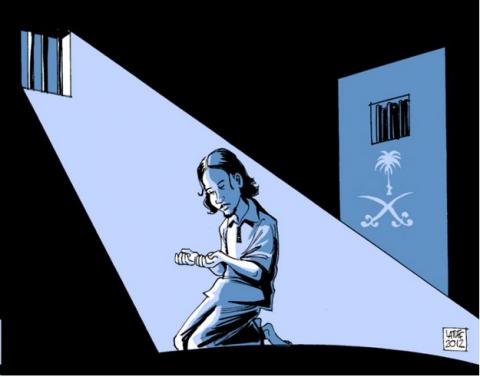Why Is Blasphemy Still A Crime?

From PunditWire:
The United States Commission on International Religious Freedom, an agency charged by Congress with monitoring liberty of conscience around the world, has just issued a report on prosecutions for blasphemy in other countries.
Predictably, the leading offenders are Muslim countries, such as Egypt, Iran, Bangladesh, Sudan, Saudi Arabia and Pakistan. Pakistan is cited as “the most egregious example … where blasphemy charges are common and numerous individuals are in prison, with a high number sentenced to death or life terms.”
Yet the same report mentions a prosecution for blasphemy in Greece, where a young man created a satirical Facebook page spoofing a Greek Orthodox monk who died in 1994 and is venerated as a saint by his cult following. In addition, the report says that countries as diverse as India, Ireland, Kuwait, Poland and the Philippines have “blasphemy-like” statutes, although they are rarely enforced.
Lest Americans feel smug about our own tolerance for religious diversity, we should remember that our country, too, once had prosecutions for blasphemy, and that such prosecutions were still taking place nearly 200 years after the days of the Salem Witch Trials.
In 1886, a former Adventist minister turned freethinker named Charles B. Reynolds was arrested for violating a New Jersey blasphemy law. At his trial, he was represented by Robert Ingersoll, another freethinker known as “the Great Agnostic.”
Ingersoll was not only a brilliant lawyer, he was by common consent the greatest orator of his day. His closing speech to the jury was typically dazzling: “I deny the right of any man, of any number of men, of any church, of any State, to put a padlock on the lips – to make the tongue a convict. I passionately deny the right of the Herod of authority to kill the children of the brain.”

Despite his eloquence, Ingersoll lost the case, but he had the last laugh on the New Jersey law. First, he paid Reynolds’ fine out his own pocket. Some time later, he arranged—over the vigorous protests of local clergy—to book a lecture in Hoboken. At first, the ministers tried to close down the theatre. But when that failed, they showed up with police detectives in tow, ready to demand Ingersoll’s arrest the minute a single sacrilegious word passed his lips.
Undismayed, Ingersoll began his lecture by pointing out how certain passages of the Bible, if taken literally, contradicted each other. Did that mean the Bible was not in fact the word of God? “I don’t know,” he answered with a bland smile. “I don’t know. If it were not for the Jersey blasphemy statute I might know. As it is, I don’t. The Hoboken parsons know. Ask them.”
By the time he finished, even the police were reduced to helpless laughter. There would never be another prosecution for blasphemy in the United States. Ingersoll had shamed such laws from the books.
It may be that over time international revulsion against blasphemy prosecutions will have the same effect on the countries where they are still carried out. At least we may hope so.
Author Bio:
Hal Gordon, who wrote speeches for the Reagan White House and Gen. Colin Powell, is currently a freelance speechwriter in Houston. Web site: www.ringingwords.com.
From PunditWire






























































































































































































































































































































